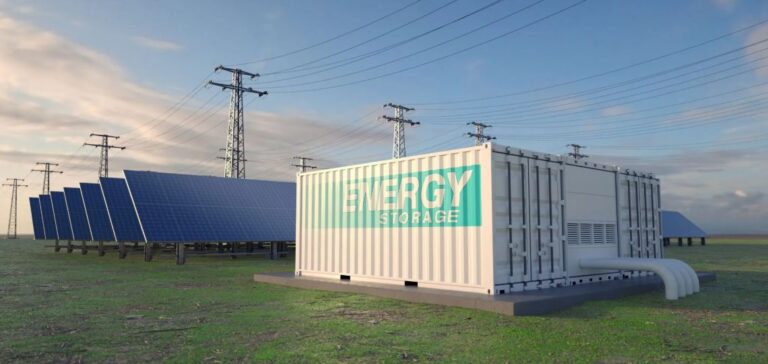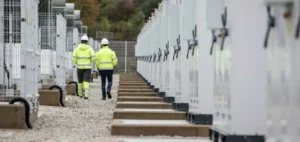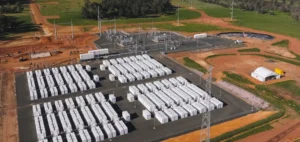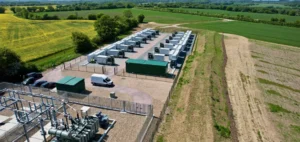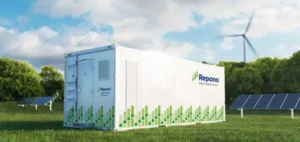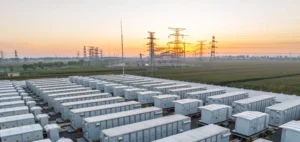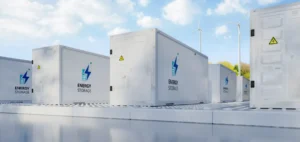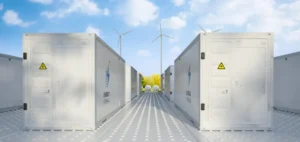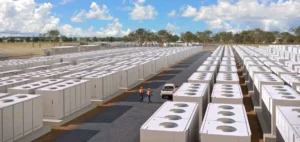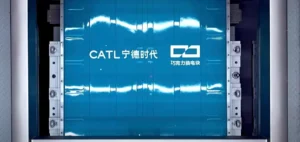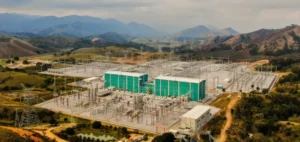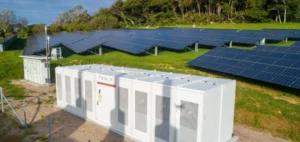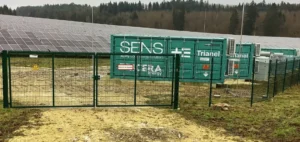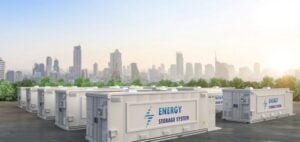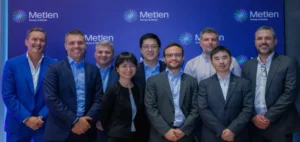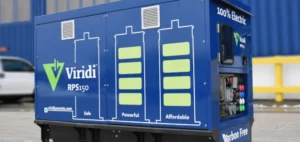In the village of Bollingstedt, in northern Germany, a storage facility composed of a hundred containers is nearing completion. Set to become operational in spring, it will have the capacity to supply electricity to 170,000 households for two hours during peak demand periods. This initiative is part of Germany’s efforts to address the intermittency of renewable energy, whose production fluctuates depending on weather conditions. Tobias Badelt, spokesperson for Eco-Stor, the company responsible for the project, explains that these batteries help “store excess electricity and release it when needed.”
Storage development and energy challenges
Germany is pursuing an ambitious energy transition, aiming to achieve 80% renewable electricity generation by 2030, up from approximately 60% in 2024. However, the variability of solar and wind power production puts pressure on the electricity grid. During high production periods, the infrastructure is overloaded, while in low production periods, the country must import electricity, particularly from France and Poland. This winter, Germany had to rely on French nuclear power and Polish coal to avoid outages.
Increasing investments
To address these challenges, energy storage is expanding rapidly. In 2024, around 100 new storage systems, with a combined capacity of 0.8 gigawatt-hours (GWh), were deployed, doubling the installed capacity from the previous year. While crucial, these infrastructures are still insufficient to ensure a stable supply. The government also plans to invest in gas-fired power plants convertible to hydrogen and to expand the electricity grid, particularly to transport wind-generated power from the north to consumption hubs in the south.
Political constraints and future outlook
Modernising the grid and developing storage requires massive public investment. Political stability plays a crucial role in these projects, yet the dissolution of Olaf Scholz’s government in November has delayed several initiatives. Friedrich Merz, the leading candidate in the upcoming legislative elections, has criticised the current energy policy but maintains the long-term goal of phasing out fossil fuels. However, budget constraints could slow the growth of storage technologies and the development of infrastructure needed to secure Germany’s electricity supply.

